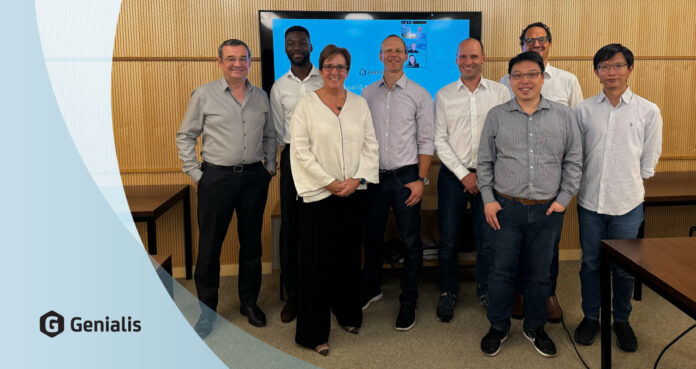
BOSTON– Genialis, the RNA-biomarker company, today announced the appointment of Krista McKerracher as Chairperson of the Board of Directors. McKerracher is a seasoned biopharmaceutical leader passionate about bringing new medicines to patients with life-threatening diseases. Her background includes almost three decades at Johnson & Johnson and Novartis Oncology, where she held senior commercial and senior R&D leadership roles and launched several first-in-class drugs in the hematology/oncology space. McKerracher rounded out her drug development career at CRISPR Therapeutics, where she led the team that brought the first CRISPR Cas9 ex-vivo gene editing product to the clinic (HbF edited stem cells for hemoglobinopathies.)
McKerracher joins Cedric Odje, representing Debiopharm Innovation Fund; Ita Lu of Taiwania Capital; independent director Elia Stupka; and Genialis co-founders Rafael Rosengarten, Ph.D. (chief executive officer) and Miha Štajdohar, Ph.D. (chief technology officer) on the board.
“Throughout my career, I’ve worked on a lot of firsts. Genialis has a promising opportunity to be the first to harness the vast amount of data contained in a small tumor sample and use that to bring reality to truly personalized medicine – delivering the right drug for the right patient at the right time,” said McKerracher. “When I was diagnosed with cancer in 2015, tumor sequencing was still brand new, and despite working in the field, many of my colleagues were skeptical about the value of sequencing for my tumor type because links to specific mutations were not well understood. With the Genialis approach to RNA-based biomarkers, I believe that in the future, all patients will have their tumors sequenced as standard of care. Genialis is on the leading edge of precision medicine, driving innovation and hope for patients globally.”
Ms. McKerracher is an experienced public company board member known for bringing a solid commercial orientation to the drug development process. McKerracher graduated from the University of Waterloo (BSc. Hon. Applied Health Sciences) and earned an MBA from York University.
“When we started our search for a board chair, we focused on finding someone who embraced our company value of ‘people first’ and committed to improving outcomes for patients globally,” said Dr. Rosengarten. “Krista brings the perspective of someone who has overseen the entire drug development life cycle on a global scale for some of the preeminent pharma companies, helping Genialis direct its biomarker algorithms to the most critical pain points in the process.”
Genialis recently announced a breakthrough development in its predictive biomarker for KRAS inhibitor therapies and is currently enrolling select participants in its early access program. Genialis krasID is a new Artificial Intelligence classifier that accurately predicts response and clinical benefit to KRAS inhibitors across preclinical, clinical, and real-world settings. Most biomarkers in the KRAS space measure only KRAS mutation status, which may be necessary to receive the drug but is insufficient to predict or monitor response or to inform combinations or subsequent therapeutic interventions. By using high-dimensional gene expression data, Genialis krasID captures underlying biological complexity unique to each individual patient. Over 50 biopharma companies are currently developing more than 70 different KRAS-targeted drugs across over 12 disease indications. The total KRAS therapy market today is estimated at approximately $240 million, with a compound annual growth rate of 36% to reach $10 billion by 2032. Meanwhile, available diagnostics to support KRAS-targeted patient care are limited to mutation-based tests.

